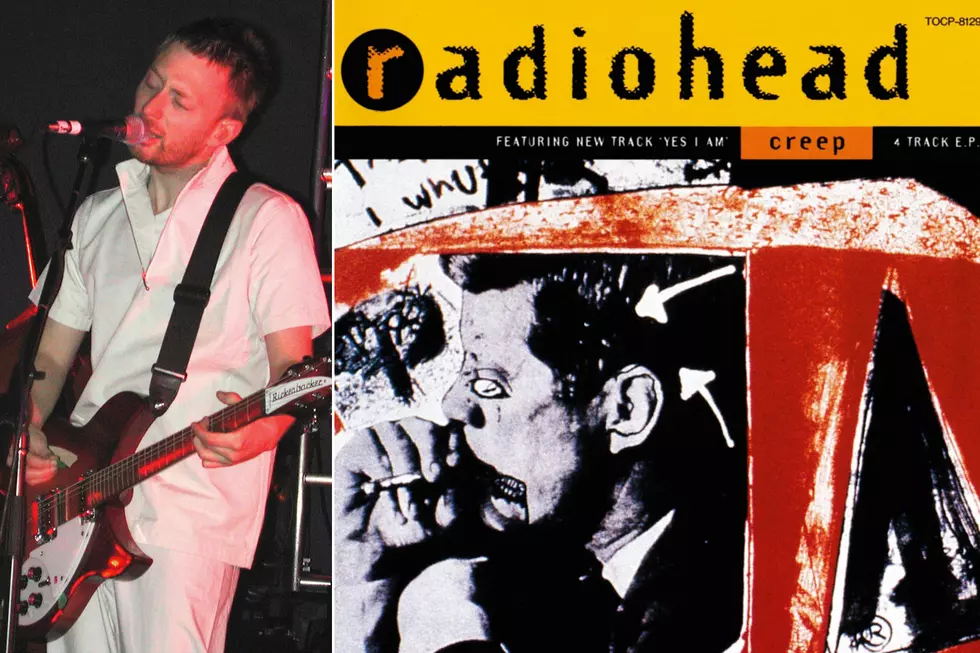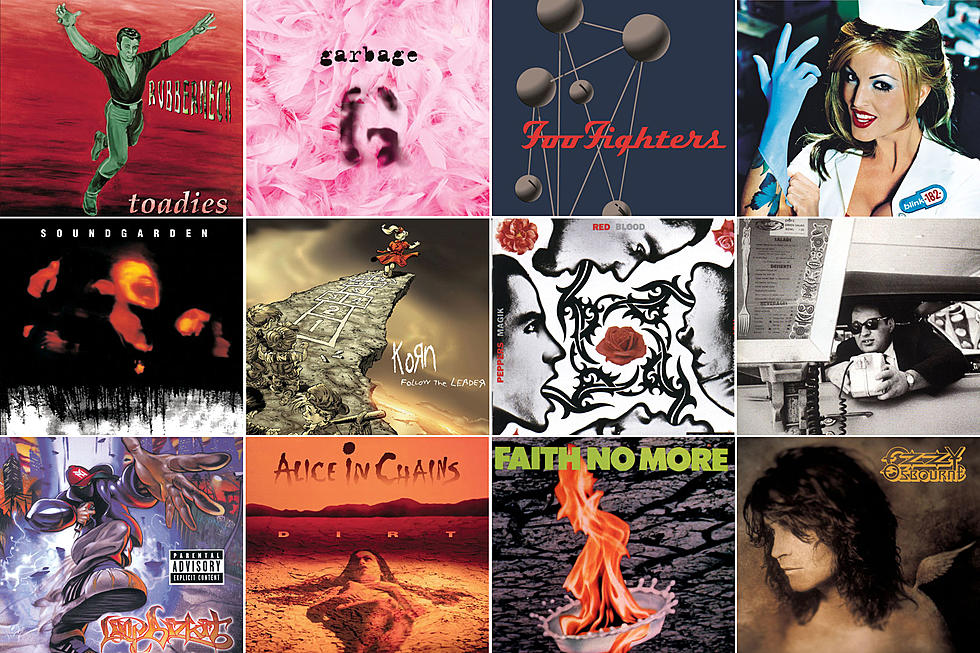
30 Years Ago: Why Radiohead’s ‘Creep’ Was Initially a Failure
Radiohead's "Creep" may forever be regarded as one of the '90s defining rock songs, but it was roundly dismissed by critics and U.K. listeners upon release.
Known in their early years as On a Friday, the band developed plenty of buzz around Oxfordshire, an area west of London where the members were attending college. Record labels soon came calling, so they signed their first record deal in December 1991 – and changed their name to Radiohead.
As sessions began for their debut album Pablo Honey, Radiohead brought in producers Paul Kolderie and Sean Slade, who had worked with the Pixies and Dinosaur Jr. The producers were initially wary, as they weren’t impressed by songs the label had earmarked for recording.
“Then one day in rehearsal, they burst into this other song, which I guess they'd just written,” Kolderie told Mojo. “When they finished it, Thom [Yorke] mumbled something like, 'That's our Scott Walker song' ... except I thought he said, 'That's a Scott Walker song.' Now, I was pretty familiar with Scott Walker, but jeez, there's a lot of albums and I could have missed something! We walked out of the rehearsal that night and Sean said, ‘Too bad their best song's a cover.’”
That song was “Creep.” When Kolderie and Slade discovered that it was, in fact, an original, they insisted Radiohead record it. After one take, Kolderie knew they had something special: "At the end, everyone in the place was silent for a moment and then they burst into applause. I'd never had that happen before.”
Listen to Radiohead's 'Creep'
Anticipation was high for the single, but "Creep" arrived in the U.K. on Sept. 21, 1992 with a thud. BBC's Radio One reportedly considered it "too depressing" for airplay. "Creep" only made it to No. 78 on the U.K. chart, selling roughly 6,000 copies – far from the breakthrough success many had hoped for. Follow-up singles "Anyone Can Play Guitar" and "Pop Is Dead" fared only mildly better in Radiohead’s homeland. However, something interesting started happening internationally.
“Creep” found unexpected success in Israel, thanks in large part to a DJ named Yoav Kutner who put the song in heavy rotation. Radio support began popping up in other nations, too, including Australia, New Zealand and Spain. Rather than breaking down doors, “Creep” was quite literally creeping onto stereos all over the world.
In America, an import copy of the song made its way to San Francisco's Live 105, an alternative tastemaker. Others began to follow suit. By 1993, what started as a slow burn turned into an inferno. “Creep” peaked at No. 2 on Billboard’s alternative chart and No. 34 on the Hot 100. Meanwhile, its video was all over MTV.
Despite the song’s overseas success, Radiohead were reluctant to reissue the song in the U.K. “We said 'Oh no! Not in a million bloody years! Over our dead bodies!'” Yorke told Melody Maker. Following the group’s 1993 U.S. tour, however, they reconsidered.
“We got back from America and just thought, ‘Why not?’” Yorke admitted, noting how fans seemed to gravitate to the track. “I suppose the song won in the end.”
Watch Radiohead's 'Creep' Video
The reissued single hit No. 7 in the U.K., establishing Radiohead’s fanbase at home and abroad. In time, however, they developed a love-hate relationship with this outsider’s anthem. As the band further embraced deeper artistic endeavors, they looked upon the early hit as a poor representation.
“I wasn’t very happy with the lyrics; I thought they were pretty crap,” Yorke told Rolling Stone, adding that he didn’t even feel like he had ownership of the song. “When we play it, it feels like we’re doing a cover.”
They'd ultimately play “Creep” on only the rarest occasions in concert. All of these developments were far in the future as they became a staple of alt rock. In those early days, all Radiohead knew was that they’d scored their first hit, albeit in an unorthodox way.
“Because [“Creep”] took off in other places, we realized its potential, but we were shocked that so many people picked up on it so heavily,” Yorke told Melody Maker. “We thought it was a good song - but you don't sit around at the end of a recording session saying, ‘Hey, this is going to be a hit in America, guys!’”
Radiohead Albums Ranked
More From Classic Rock 105.1










